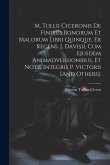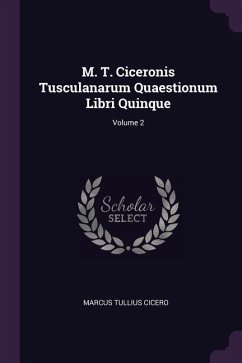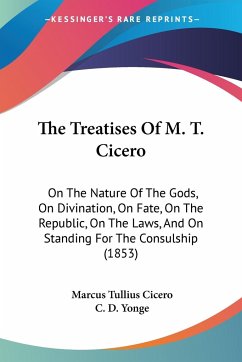M. Tullii Ciceronis Libri De Divinatione Et De Fato est opus magnum a Marco Tullio Cicerone scriptum, quod in annum MDCCCXXX editum est. Liber est de divinatione et fato, duobus rebus quae homines saepe inter se conferunt. Ciceronis intentio est ostendere quomodo divinatio et fatum in vita humana influant. In primo libro, Cicero disputat de divinatione, quae est ars praedicendi futura. In secundo libro, Cicero agit de fato, quod est necessitas rerum futurarum. Liber est scriptus in lingua Latina et est una ex operibus philosophicis Ciceronis.This scarce antiquarian book is a facsimile reprint of the old original and may contain some imperfections such as library marks and notations. Because we believe this work is culturally important, we have made it available as part of our commitment for protecting, preserving, and promoting the world's literature in affordable, high quality, modern editions, that are true to their original work.
Hinweis: Dieser Artikel kann nur an eine deutsche Lieferadresse ausgeliefert werden.
Hinweis: Dieser Artikel kann nur an eine deutsche Lieferadresse ausgeliefert werden.








